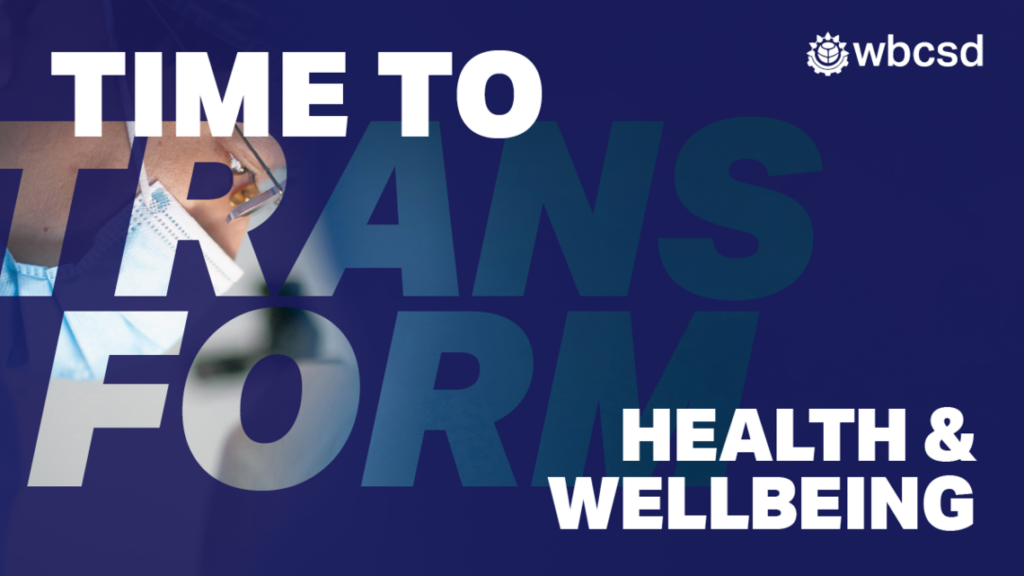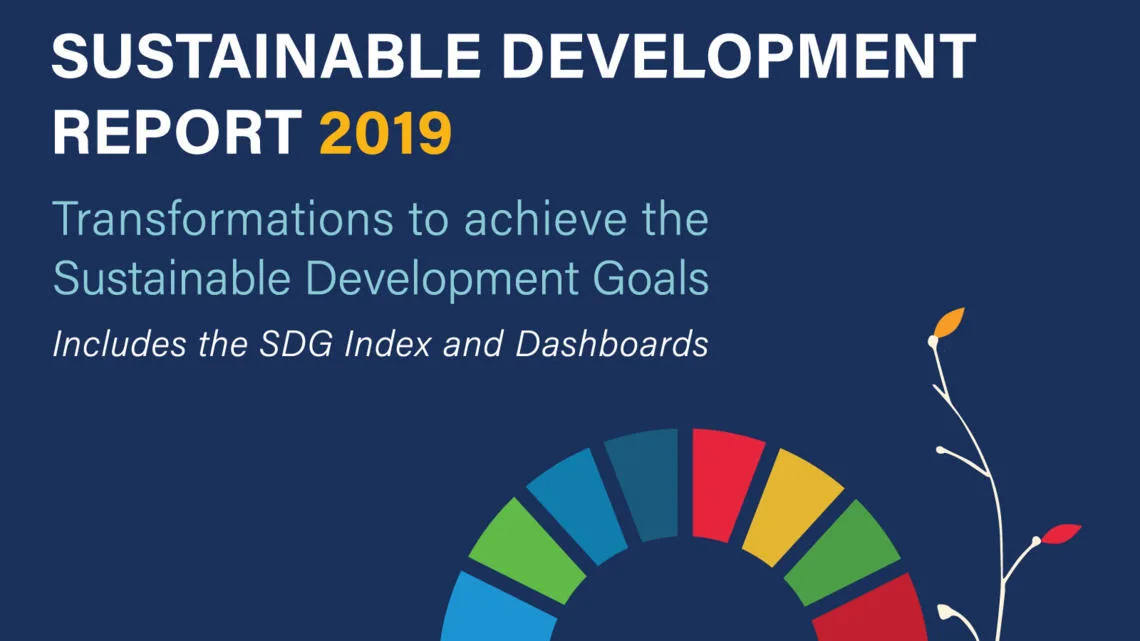Authors
James Gomme
WBCSD’s Director of SDGs, James Gomme, explores the business case for engaging with the Sustainable Development Goals and takes stock of progress as part of an article appearing in the 2019 Sustainable Development Report
As we approach four years since the launch of the Sustainable Development Goals we find ourselves confronted by a world characterized by escalating levels of volatility and uncertainty; a world in which the SDGs’ vision of long-term prosperity for people and planet is perhaps more relevant and more urgent than ever before.
Although fundamentally the implementation of the SDGs rests in the hands of governments around the world, the simple fact is that this vision will not be realized without robust and sustained efforts from the private sector.
As an engine of economic growth and employment, responsible for 84% of GDP and 90% of jobs in developing countries, the private sector is ideally placed to improve the lives of the poor and deliver on the promise of sustainable and socially inclusive economic development.
What is more, many of the technologies and innovations that will drive progress on the SDGs in fields such as energy, construction, food and mobility will also stem from the creativity and R&D investment that exists within companies.
Business also has a broader role to play as an essential source of finance when it comes to unlocking the estimated $5 trillion to $7 trillion worth of annual investment the United Nations estimates will be needed to realize the SDGs by 2030.
It is also important not to understate the impact that business can have on this agenda through the implemen-tation of robust commitments to manage and mitigate its most salient negative impacts on people and planet. In particular, diligent efforts to ensure corporate respect for human rights throughout the supply chain have the potential to break down significant barriers to develop-ment and positively impact the lives of millions of some of he most vulnerable individuals in society.
Put simply, the SDGs need business. However, this depen-dence is entirely mutual – ultimately long-term business success also very much hinges on the SDGs being realized.
Business cannot thrive in societies that fail. Many of the social and economic successes that the world has enjoyed in recent decades have masked major fault lines in our current development model and these are giving rise to a swelling list of environmental and social burdens, burdens which represent mounting costs to companies and ultimately are turning the world into a less viable place in which to conduct business.
The private sector therefore has a clear and vested interest in working to develop and scale sustainable business solutions to address these challenges. At the World Business Council for Sustainable Development (WBCSD), we have translated the ambitions of the SDGs into six work programs which bring leading companies together to drive transformation across a series of key economic systems. Specifically, we are focusing our efforts around: circular economy; cities and mobility; climate and energy; food and nature; people; and redefining value.
Companies that choose not to engage with the transfor-mative ambitions of the SDGs face a series of substantial risks: risks to their operations, as myriad environmental and social impacts continue to spiral beyond our control; risks to their reputation, as public awareness and indig-nation around the issues that sit at the heart of the SDGs becomes increasingly acute; and regulatory risk as governments around the world move ahead with imple-mentation of the SDG agenda.
Conversely, for companies that embrace the SDGs and are able to position this framework at the heart of their strategic considerations, the prize will be considerable. The Business and Sustainable Development Commission’s landmark Better Business Better World points to at least US$12 trillion of market value which could be unlocked per year if the SDGs are realized by 2030, creating more than 380 million jobs in the process. The SDGs thus provide an important new lens through which business can explore new opportunities, more effectively manage its risks and secure an enduring license to operate on the road to 2030.
There are also growing signals that companies that are able to demonstrate positive impact on the SDGs ultimately stand to enjoy a range of financial benefits.
Numerous institutional investors, from Dutch pension funds PGGM and APG, to the likes of CalPERS in the US and Cbus in Australia are increasingly seeking to align their portfolios with the ambitions of the SDGs and are channelling investments into organizations that can demonstrate robust SDG impact. Emerging financial instruments such SDG bonds, as recently pioneered by the likes of the World Bank and HSBC, and ESG-linked loan facilities are providing yet further signals that SDG align-ment has the potential to be an important determining factor in lowering the cost of capital in the long-term.
The business case for engaging with the SDGs is seem-ingly therefore very compelling, but to what extent has the private sector embraced this agenda and shown willingness to explore and invest in these opportunities? 2019 represents an important juncture for taking-stock of global efforts to realize the SDGs, with the UN set to release the findings of an extensive progress report, as well as convening an SDG Summit alongside the UN General Assembly in September to bring all heads of state together to discuss this agenda for the first time since it was launched. Against this backdrop, this year also pres-ents us with a fitting opportunity to assess the progress that has been made by business.
In a survey of around 300 leading global companies con-ducted in 2018, WBCSD found that 88% of companies had engaged with the SDGs in some way and over 80% had integrated communication around their efforts into their corporate disclosure. 76% of companies had undertaken a process to identify the SDG’s that are most relevant to their organization and more than 40% noted that they intended to set specific SDG-related targets moving forward.
Business leadership across the world is increasingly focusing its attention on the SDGs and how the potential of business to contribute to the goals can be fully realized. The Goals themselves are now established as a key agenda item at prominent international gatherings such as the World Economic Forum in Davos, and a wide variety of regional initiatives such as the Nordic CEOs for a Sustainable Future platform are emerging and exploring ways to turn ambition into action. The leadership efforts by the Japan Business Federation (Keidanren) which has integrated the SDGs into its Charter of Business Conduct and issued a resounding call for Japanese business to leverage its technological innovation to drive contributions across the spectrum of the SDGs is also a noteworthy example.
We are also seeing companies rallying around pioneering new collaborations to advance this agenda. WBCSD is continuing to work with a range of industries to develop detailed SDG sector roadmaps, while broader initiatives such as the Alliance to End Plastic Waste, the Food and Land Use Coalition or the UN Global Compact’s Business Platform for the Ocean are seeking to forge cross-sectoral alliances to tackle systemic challenges.
However, a number of significant hurdles remain when it comes to achieving the necessary scale and pace of business action to realize the transformational ambitions that sit at the heart of the SDGs. Many companies are still struggling with the complexity of the Goals and the targets that underpin them. Less than 40% of companies we surveyed in 2018 had undertaken a detailed analysis of the SDGs at target level and therefore in many cases are potentially overlooking key opportunities to contribute.
Another important challenge is translating the global ambitions enshrined within the SDGs into their implica-tions at a local level. For many companies with footprints spanning a range of continents it can be tempting to adopt a one size fits all approach to generating SDG impact. The reality however is that there is a pressing need for global businesses to unpack the local SDG priorities in the various regions in which they have operations or interactions, and to leverage this insight to deliver more tailored and ultimately more impactful business solutions.
The ongoing work by Bertelsmann Stiftung and SDSN in developing the annual SDG Index and Dashboards plays a crucial role in cutting through some of this complexity. Moving forward it will be important to explore ways in which we can ensure that this data is more routinely integrated into business decision-making to ensure that the full potential of the private sector is realized to accelerate the transition towards a world where no one is left behind.
This article originally appeared in the Sustainable Development Report 2019 produced by the Bertelsmann Stiftung and the Sustainable Development Solutions Network (SDSN) which includes the SDG Index and Dashboards which explore country-level progress on the realization of the Sustainable Development Goals.
WBCSD news articles and insights may be republished in accordance with the Creative Commons Attribution-NonCommercial-NoDerivatives 4.0 International Public License, and in accordance with our Privacy Policy. All Content must be featured with due credits.
Related
Content

Getting ready to reach new heights of sustainable business leadership
13 December, 2021

UNICEF and WBCSD launch guidance for business leaders on how to step up efforts to eliminate child labor
10 December, 2021

Vision 2050 Health & Wellbeing Pathway: We can help people feel better
30 November, 2021

